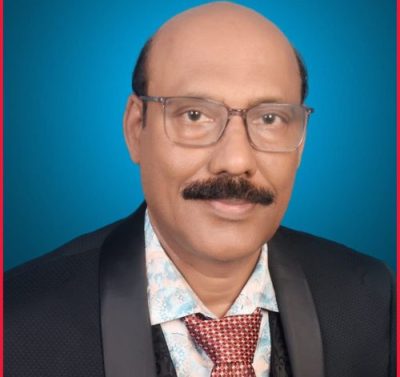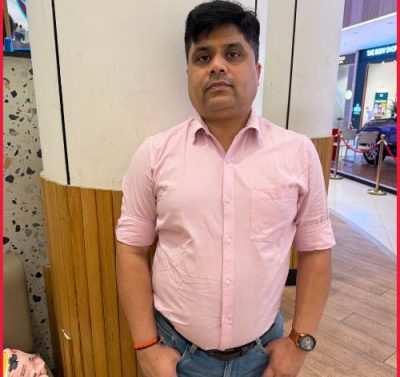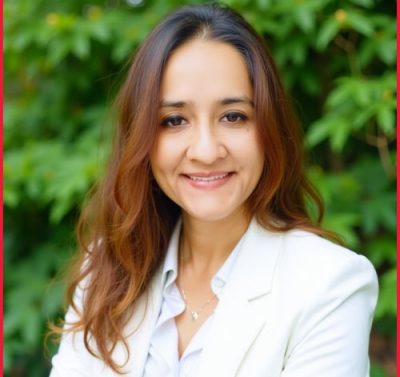With 4.31Cr cases and 5.24L reported deaths due to Covid-19 to date, the healthcare industry in India has been stretched to its absolute limits for the last two years. The demands from the industry were already high before the landfall of the Covid juggernaut, but the pandemic truly kicked the proverbial door down and exposed huge gaps in the country’s existing healthcare infrastructure.
Manipal Hospitals, India’s second-largest healthcare network, tackled the grueling two years of the pandemic with Dilip Jose, MD, and CEO, at the helm. With over 18 years of experience in healthcare, Mr. Jose is a true pioneer of the industry in India. We recently caught up with him.
Now that the world has experienced the grim nature of a pandemic, do you think preparedness for future pandemics should be on the agenda for hospitals and healthcare institutions across the globe?
The last two decades saw many pandemics – SARS and MERS to name two, besides Covid-19, although it surpassed the previous ones in terms of infectivity and severity. The frequency of these outbreaks has been increasing and we have to assume that there would be more pandemics in the future, perhaps even at shorter intervals than the past. Therefore, the lessons learned from the last two years, across all facets of healthcare delivery, would need to be internalized. Ability to be agile, innovative, adaptive, and focused would be fundamental for all healthcare institutions across the world. Collaboration across sectors and across nations would be essential.

What will be the role of telemedicine in the post-pandemic world? How have you stepped up your efforts to deliver under this category of care?
Telemedicine as a technological option has been available in India for many years. Compulsions of the pandemic hastened its regulatory framework and consequent adoption by both patients as well as providers. Manipal Hospitals had only about 1% of all consultations on this mode pre-Covid and it rose to almost 20% in the peak of the second wave. Since then, as travel and other restrictions eased and in-person visits to hospitals resumed to near-normal levels, video consultations have settled at about 5% of the total. This is a significant increase from two years ago and a lasting impact of the pandemic.
Manipal Hospitals launched a patient app that also had a video consult option in-built, during June 2020. The app also had several other features that enabled seamless access to many hospital services and have been widely accepted by our patients. Along with other digital initiatives, we have also introduced a WhatsApp-based chatbot that can deal with many of the routine needs of our customers. We believe that digital routes to access care would be an ongoing necessity and hospitals would have to be ready with those capabilities.
According to the World Health Organization (WHO), the proportion of the world’s population over 60 years will nearly double from 12% to 22% between 2015 and 2050. This will significantly increase the patient burden in healthcare. How will the sector cope with such a challenge?
The change in demographics would significantly alter the morbidity profile of the population, and this is particularly true in India where the segment older than 60 years is fast growing. We are likely to see a further increase in the burden of diabetes, cardiovascular and neurological conditions, renal diseases as well as cancer. As a society, we have to realise that prevention is the best way to deal with all these and expensive tertiary care is not a sustainable option. Therefore, the healthcare sector would need to urgently have a plan to advance preventive and promotive health, while having the hospitals equipped to handle the patients who would still need hospital-based and intensive care. Given the size of our population, even a small fraction needing that would translate to a very large of number of such cases. Creation of infrastructure that is geographically well distributed, along with appropriate staffing would need to be a priority over the next decade.
How do Manipal Hospitals plan to reach out to the large section of our society which finds out-of-pocket medical treatments difficult to afford?
There are specific segments that we support with subsidised costs – children with congenital issues, people on dialysis and cancer patients, to name a few. We also work with crowd funding platforms where that might be helpful for our patients. However, given the quantum of need and the very large number of instances where people are not be able to afford treatment, our country would need an effective universal health programme as no single organisation or provider alone would be able to make a dent. However, such individual efforts could serve as a model or pilot for large-scale adoption.
WHO has said that health should be looked at as “a state of complete physical, mental and social well-being and not merely the absence of disease or infirmity”. But for this, healthcare would require a major overhaul. What are your thoughts on this?
That is absolutely right but we have a fair distance to go before reaching there. Currently, ensuring physical well-being itself is a challenge on multiple fronts – including access, affordability and quality. A concerted effort by the Governments at the Centre and States, of the kind that we witnessed while fighting Covid, would be required on an ongoing and long-term basis for us to get the three elements of health attainable for our people.
How crucial is FDI for the future of healthcare in a country like India?
Investments by financial sponsors have played a major role in the last decade or more to grow and upgrade the healthcare delivery systems in the private sector. And as private hospitals meet much of the healthcare needs of the country today, such investments have been crucial support. Since the funding requirements are only growing and as public spending has limitations, private investments would continue to be a critical factor for the future of healthcare in India.
Manipal Hospitals recently introduced digital monitoring during post-operative care. What is the importance of this new innovation?
Ensuring continuity of care, especially after critical interventions, would certainly help our patients achieve the full potential of the surgery or procedure that they underwent. The digital monitoring program that Manipal Hospitals introduced, for the first time in India, for our patients is to measure and monitor their progress post-discharge from the hospital and to motivate them to adhere to the rehabilitation plan that includes medication, diet, and exercise. The results have been very encouraging and we plan to expand the coverage of this initiative both geographically and in clinical areas.















